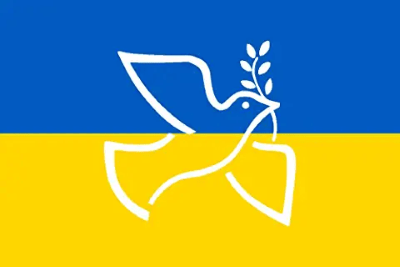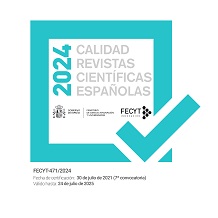Fear of COVID-19, socio-demographic and vulnerability characteristics in adults from the North and South of Mexico
Abstract
Introduction: The COVID 19 pandemic continues to be an unprecedented public health problem worldwide for both sick and healthy people.
Objective: Determine the association between the fear of COVID-19 with the socio-demographic characteristics and the status of vulnerability.
Material and methods: Descriptive, cross-sectional and correlational study. Sample: 197 participants 18 or older who belong to community-care centers in Monterrey, Nuevo León and Minatitlan, Veracruz. Intentional sampling. Instrument used: Fear of COVID-19 scale. Data assessment was performed with SPSS version 22, using descriptive and inferential statistics.
Results: Fear of COVID-19 was associated with the person’s sex, but not with the status of vulnerability and the other socio-demographic variables such as age, schooling, employment status, and place of residence.
Conclusion: Based on the purpose of the study, it was found that only the sex variable was associated with fear of COVID-19. More men than women reported having less fear, which may explain the higher prevalence of this disease in this population group.
Downloads
-
Abstract886
-
PDF (Español (España))628
-
PDF628
References
Organización Mundial de la Salud (OMS). Nuevo coronavirus-China [Internet]. [Enero de 2020]. OMS. Disponible en: https://www.who.int/csr/don/12-january-2020-novel-coronavirus-china/es/
Organización Mundial de la Salud. Alocución de apertura del Director General de la OMS en la rueda de prensa sobre la COVID-19 [Internet]. [Marzo de 2020]. OMS. Disponible:https://www.who.int/es/dg/speeches/detail/who-director-general-s-opening-remarks-at-the-media-briefing-on-covid-19---11-march-2020
Johnson MC, Saletti CL, Tumas N. Emociones, preocupaciones y reflexiones frente a la pandemia COVID19 en Argentina. Ciência & Saúde Coletiva [Internet]. 2020 [Consultado Jun 2020]; 25: 2447-56. Disponible en: https://www.scielo.br/scielo.php?script=sci_arttext&pid=S1413-81232020006702447&tlng=es
Organización Mundial de la Salud. Geo-HubCOVID-19. Sistema de Información para la Región de las Américas [Internet]. [Febrero de 2021]. OMS. Disponible en: https://covid19.who.int/
Organización Mundial de la Salud. Panel de control de coronavirus (COVID-19) de la OMS [Internet]. [Abril de 2021]. OMS. Disponible en: https://covid19.who.int/
Suárez V, Suárez-Quezada M, Oros-Ruiz S, Ronquillo-De Jesús E. Epidemiology of COVID-19 in Mexico: From the 27th of February to the 30th of April 2020. Rev Clin Esp [Internet]. 2020 [Consultado Nov 2020]; 220(8): 463-71. https://doi.org/10.1016/j.rce.2020.05.007
Informe Técnico Diario [Internet]. México: Secretaría de Salud. Disponible en: https://www.gob.mx/cms/uploads/attachment/file/634718/Comunicado_Tecnico_Diario_COVID-19_2021.05.02.pdf
Organización Mundial de la Salud. Distribución Geográfica por el coranovirus-19 en la Américas [Internet]. [Mayo de 2021]. Disponible en: https://who.maps.arcgis.com/apps/webappviewer/index.html?id=2203b04c3a5f486685a15482a0d97a87&extent=-20656313.6818%2C-3596894.4332%2C1611932.8945%2C7390469.7606%2C102100&site=paho
Hernández, JR. Impacto de la COVID-19 sobre la salud mental de las personas. Medicent Electron [Internet] 2020 [Consultado Feb 2021]; 24:1-17. Disponible en: http://scielo.sld.cu/scielo.php?script=sci_arttext&pid=S1029-30432020000300578
Balluerka, LN, Gómez BJ, Hidalgo MM, Gorostiaga MA, Espada SJ, Padilla GJ et al. Las consecuencias psicológicas de COVID-19. Informe de Investigación. [Internet]. España: Servicio de Publicaciones de las Universidades del País Vasco Euskal Herriko Unibertsitateko Argitalpen Zerbitzua. Disponible en: https://www.ciencia.gob.es/stfls/MICIN1N/Universidades/Ficheros/Consecuencias_psicologicasCOVID19.pdf
Brooks SK, Webster RK, Smith LE, Woodland L, Wessely S, Greenberg N et al. The psychological impact of quarantine and how to reduce it: rapid review of the evidence. The Lancet [Internet] 2020 [Consultado Feb 2021]; 395(10227): 912-20. https://doi.org/10.1016/S0140-6736(20)30460-8
Organización Mundial de la Salud. Salud Mental y COVID-19 [Internet]. [Marzo de 2021]. OMS. Disponible en: https://www.paho.org/es/salud-mental-covid-19
Organización Mundial de la Salud. Consideraciones psicosociales y de salud mental durante el brote de COVID19 [Internet] [Marzo de 2020]. OMS. Disponible en: https://www.paho.org/sites/default/files/2020-03/smaps-coronavirus-es-final-17-mar-20.pdf
Gobierno de México. México: Salud Mental-Coronavirus: 2020. [Internet] [Febrero de 2021]. Disponible en: https://coronavirus.gob.mx/salud-mental/
Huarcaya-Victoria J, Villareal-Zegarra D, Podestà A, Luna-Cuadros MA. Psychometric Properties of a Spanish Version of the Fear of COVID-19 Scale in General Population of Lima, Peru. Int J Ment Health Addiction [Internet] 2020 [Consultado Feb 2021]: 1-14. https://doi.org/10.1007/s11469-020-00354-5
Ahorsu, DK, Lin CY, Imani V, Saffari M, Griffiths, MD y Pakpour AH. The Fear of COVID-19 Scale: Development and initial validation. Int J Ment Health Addict [Internet] 2020 [Consultado Feb 2021]: 1-9. https://doi.org/10.1007/s11469-020-00270-8
Furman H, Griffiths M, Pkpour AH, Simkin, H. Evidencia de Validez de la Escala de Miedo al COVID-19 (FCV-195) en el contexto argentino. Psocial [Internet] 2020 [Consultado Feb 2021]; 6(2): 1-11: Disponible en: http://portal.amelica.org/ameli/jatsRepo/123/1231854011/index.html
Fitzpatrick KM, Harris C, Drawve G. Fear of COVID-19 and the mental health consequences in America. Psychological Trauma: Theory, Research, Practice, and Policy [Internet] 2020 [Consultado Feb 2021]; 12(S1): S17-S21. http://dx.doi.org/10.1037/tra0000924
Cabrera LA. Sánchez-Cantalejo C. Características y resultados de encuestas sobre el impacto de la enfermedad COVID-19. [Internet]. [Abril de 2020]. España. Escuela andaluza de Salud Pública. Disponible en: https://www.easp.es/web/coronavirusysaludpublica/tag/andres-cabrera/
Parlapani E, Holeva V, Voitsidis P, Blekas A, Gliatas I, Porfyri GN et al. Psychological and Behavioral Responses to the COVID-19 Pandemic in Greece. Front Psychiatry [Internet] 2020 [Consultado Mar 2021]; 11: 821. https://doi.org/10.3389/fpsyt.2020.00821
Šljivo A, Kačamaković M, Quraishi I, Džubur Kulenović A. Fear and Depression among Residents of Bosnia and Herzegovina during COVID-19 Outbreak Survey. Psychiatr Danub [Internet]. 2020 [Consultado Mar 2021]; 32(2): 266-72. https://doi.org/10.24869/psyd.2020.266
Sahu DP, Pradhan SK, Sahoo DP, Patra S, Singh AK, Patro BK. Fear and anxiety among COVID-19 Screening Clinic Beneficiaries of a tertiary care hospital of Eastern India. Asian J Psychiatr [Internet]. 2021 [Consultado Mar 2021]; 57:102543. https://doi.org/10.1016/j.ajp.2020.102543
Alomo M, Gagliardi G, Peloche S, Somers E, Alzina P, Prokopez CR. Psychological effects during the COVID-19 outbreak in Argentina. Rev Fac Ciencias Med de Cordoba [Internet]. 2020 [Consultado Mar 2021]; 77(3): 176-81. https://doi.org/10.31053/1853.0605.v77.n3.28561
Oliver N, Barber X, Roomp K, Roomp K. Assessing the Impact of the COVID-19 Pandemic in Spain: Large-Scale, Online, Self-Reported Population Survey. J Med Internet Res. [Internet] 2020 [Consultado Mar 2021];22(9): e21319. https://doi.org/10.2196/21319
Mamzer H. Postmodern society and COVID-19 pandemic: old, new and scary. Society Register [Internet] 2020 [Consultado Mar 2021]; 4(2), 7-18. https://doi.org/10.14746/sr.2020.4.2.01
Tzur Bitan D, Grossman-Giron A, Bloch Y, Mayer Y, Shiffman N, Mendlovic S. Fear of COVID-19 scale: Psychometric characteristics, reliability and validity in the Israeli population. Psychiatry Res [Internet] 2020 [Consultado Mar 2021]; 289. https://doi.org/10.1016/j.psychres.2020.113100
Bedoya Dorado C, García SolarteM. Efectos del miedo en los trabajadores y la organización. Estud Gerenc [Internet] 2016 [Consultado Mar 2021];32(138):60-70. https://doi.org/10.1016/j.estger.2015.10.002
The works published in this magazine are subject to the following terms:
1. The Publications Service of the University of Murcia (the publisher) preserves the copyright of the published works, and encourages and allows the reuse of the works under the license for use stated in point 2.
© Servicio de Publicaciones, Universidad de Murcia, 2011 (© Publications Service, University of Murcia, 2011)
2. The works are published in the electronic edition of the journal under Creative Commons Reconocimiento-NoComercial-SinObraDerivada 3.0 España(texto legal) “ a Attribution-NonCommercial-NoDerivatives 3.0 Spain license (legal text)”. They can be copied, used, broadcasted, transmitted and publicly displayed, provided that: i) the authorship and original source of their publication (journal, publisher and URL) are cited; (ii) are not used for commercial purposes; iii) the existence and specifications of this license is mentioned.
3. Conditions of self-archiving. Authors are allowed and encouraged to electronically disseminate the pre-print (pre-reviewed ) and / or post-print (reviewed and accepted for publication) versions of their works prior to publication, as it ensures a wider circulation and dissemination which may lead to a possible increase in its mention and a higher scope among the academic community. RoMEO color: green.













